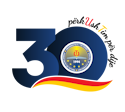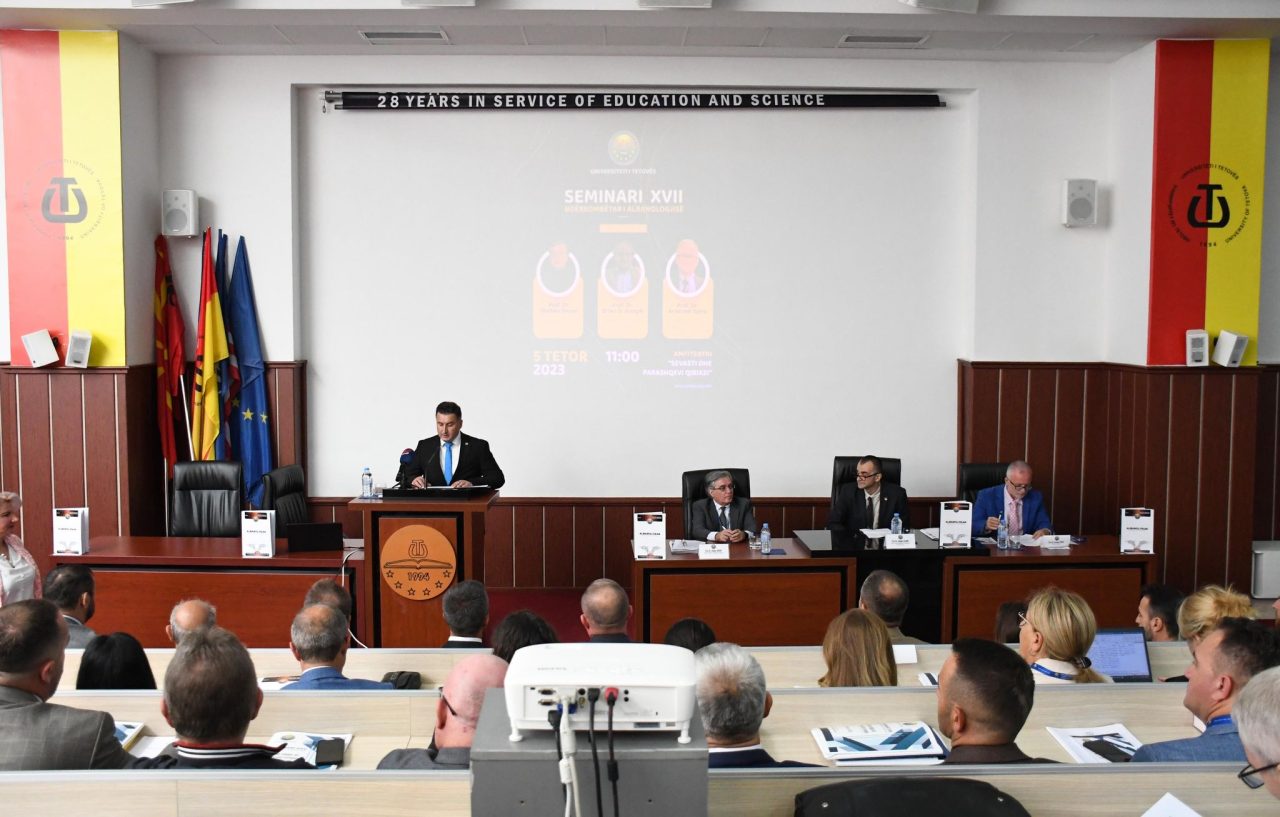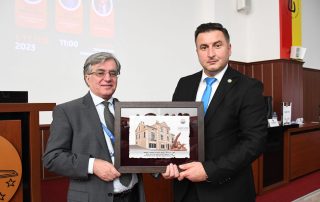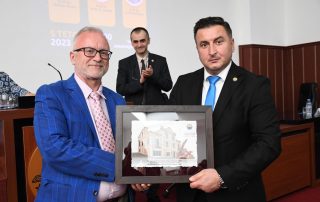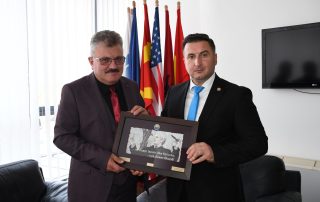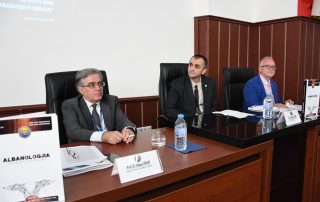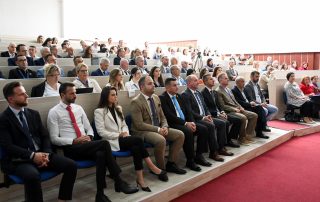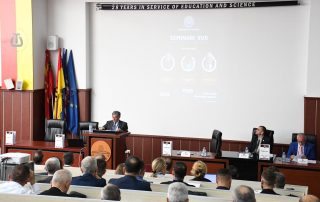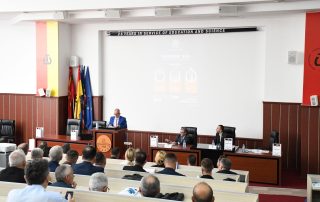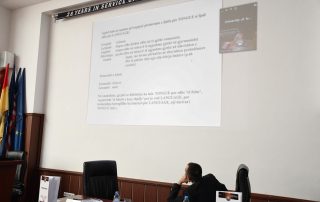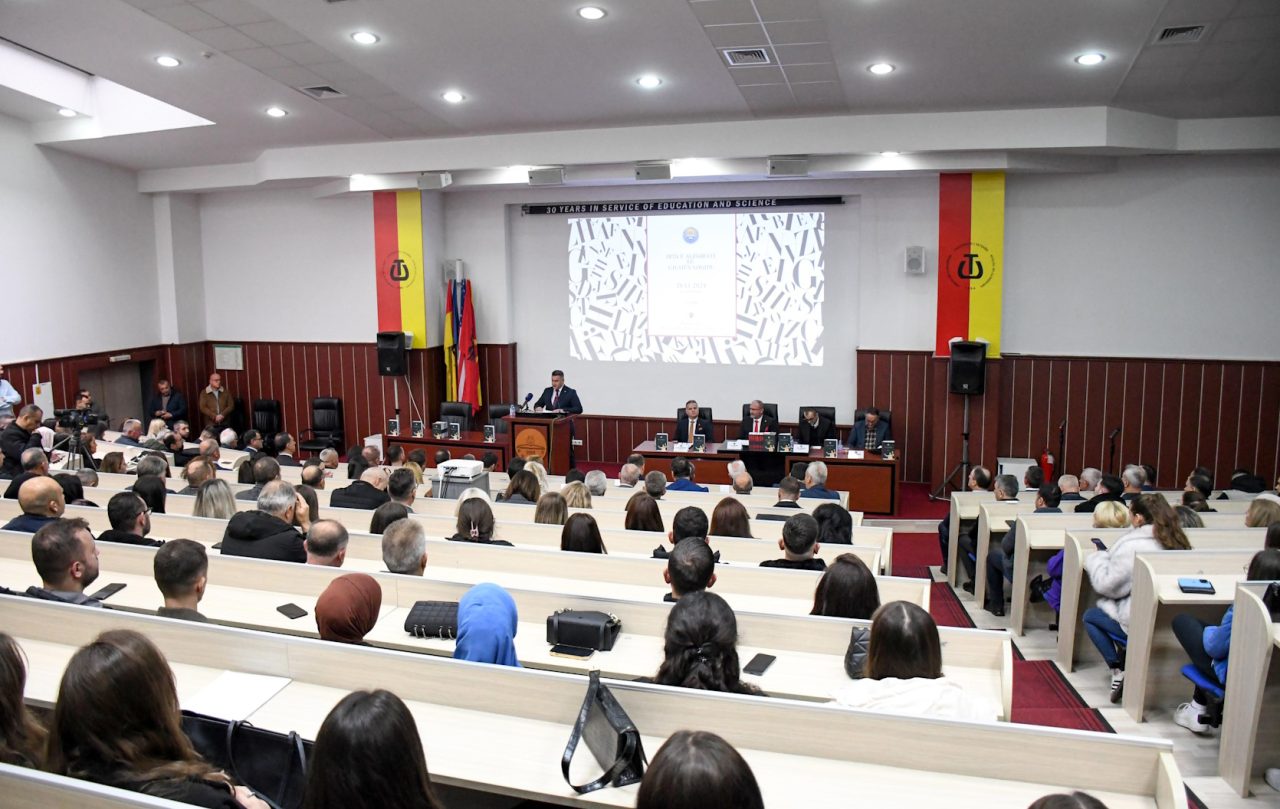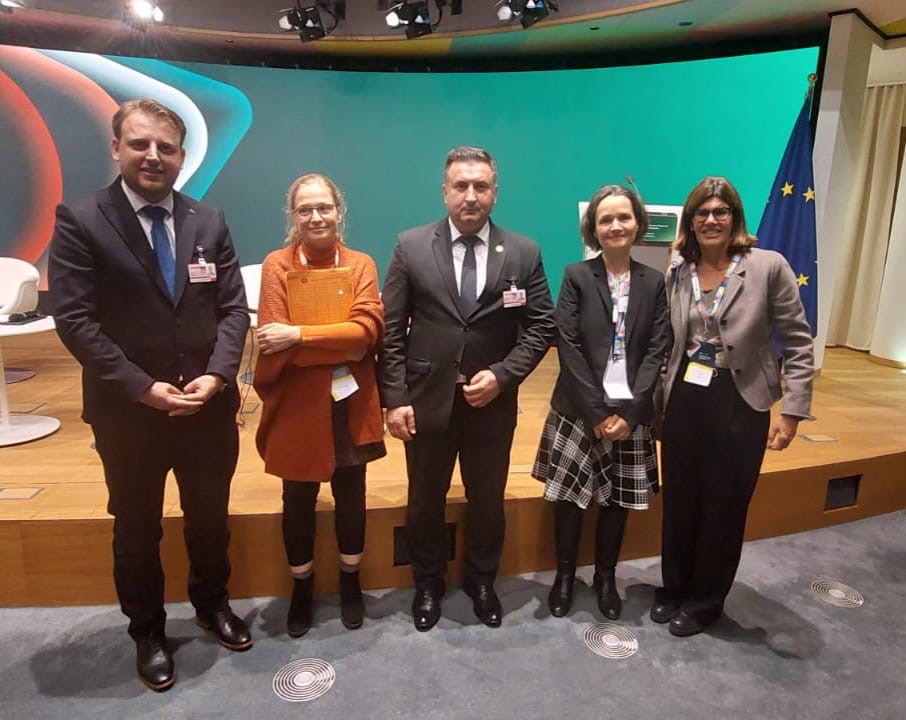At the University of Tetova, today started its proceedings the XVII International Seminar of Albanology. The central topic of this seminar was “Albanian literature in the European context”. In this scientific activity, hundreds of researchers from the country and the region, through their statements, revealed their knowledge and ideas based on scientific facts. This seminar has now become an important center for the study of the language, literature, history of Albanian culture and beyond. Among other things, today was promoted the new issue of the magazine “Albanologjia“.
Rector of the University of Tetova, Prof. Dr. Jusuf Zejneli said that this seminar is one of the most sensational and long-term activities that the University of Tetova organizes and he, as the rector, together with his colleagues, are very interested in this scientific activity during its journey to develop the scientific diversity of cultural through research, analysis, debates, advice, suggestions, remarks and criticisms, as well as new trends from experts in the relevant fields. “Linguistics, literature, history, ethnoculture and media are the five main pillars in which scientific researchers – experts in the fields will present their papers, which will be very important for the advancement of the aforementioned sciences, not only in the entire Albanian area but also in the region and beyond. University of Tetova has always paid due attention to research-scientific work, and this is evidenced by the professionalism and dedication of all academic units of our University, which every year organize international scientific conferences with the presence of a large number of scientific researchers from different countries of the world. Over the years, the Seminar of Albanology has been at the head of the name that it represents, it has made an essential contribution to historiography, publications that have been translated in Europe and everywhere in the world, studies which already serve as a reference for young researchers” underlined the Rector, among other things of the University of Tetova, Prof. Dr. Jusuf Zejneli.
Vice-Rector for International Relations, Prof. Dr. Salajdin Salihu, in his speech, emphasized the comparison of Albanian and European culture. “Albanian culture vs European culture. Albanian culture, as a multi-lmulti-layered culture enriched in interaction, has been and is part of the European cultural mosaic. The history of Albanian culture is the history of European paradigms, such as the Albanian humanism with authors such as: Marin Barleti, Dhimitër Frangu, Gjon Buzuku, Frang Bardhi, Pjetër Budi, Pjetër Bogdani, etc. Then the National Renaissance dawned – among the most important eras in Albanian history. Albanian romanticism developed alongside European romanticism. Lamartine wrote to De Rada: “Poetry has come from your shores and must return there. If the renaissance people created the dream of creating a secular Albanian state, with a western orientation, the thinkers of the 30s of the 20th century, when the Albanian state already existed, were committed to putting the law on freedom, which would guarantee personal freedom, political freedom, work, thought, conscience, press, worship, social relations and learning” said, among other things, the Vice-Rector for International Relations, Prof. Dr. Salajdin Salihu.
The other panelists also presented their papers. The well-known professor from the Academy of Sciences of Albania, Prof. Dr. Shaban Sinani, presented the topic: “Albanian literature beyond the border of language”; Prof. Dr. Aristotle Spiro from the University of Athens elaborated on the topic: “Translation of Albanian literature as a tool for the integration of Albanian culture in the European cultural polysystem” and Prof. Dr. Brian D. Joseph from Ohio University, presented the topic: “The word “language” in the European context”.
This seminar, which will be held on October 5 and 6, 2023, is important as it contributes to the development and preservation of the cultural and historical heritage of our nation. Through this seminar, interested researchers have the opportunity to research, share and exchange various information about the aforementioned topics.
